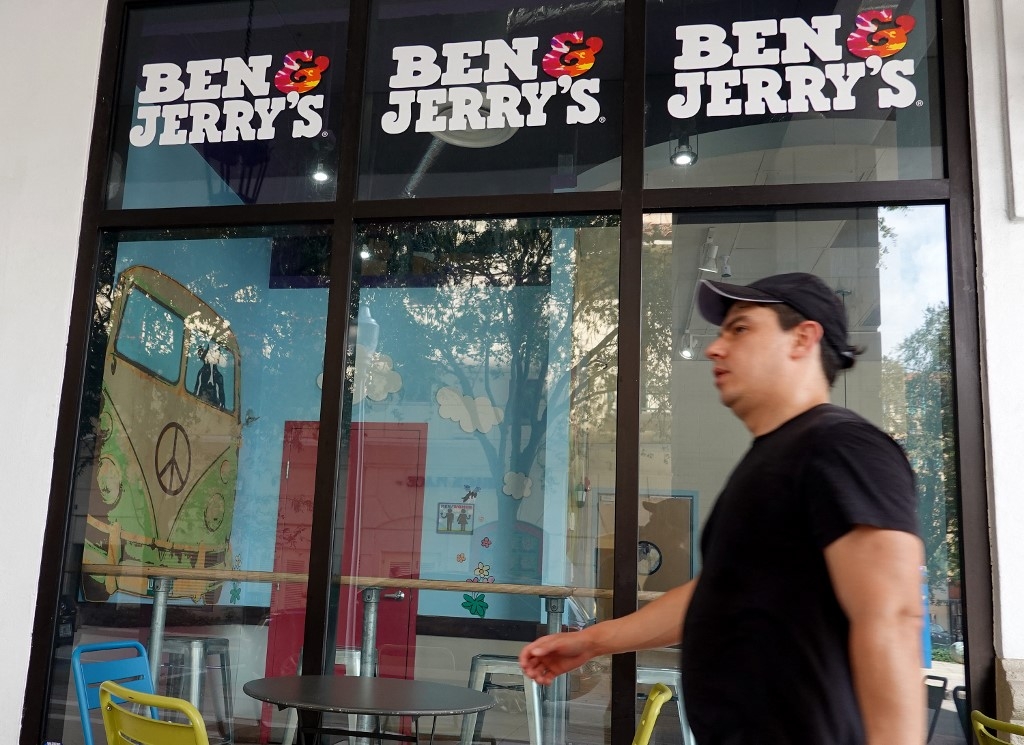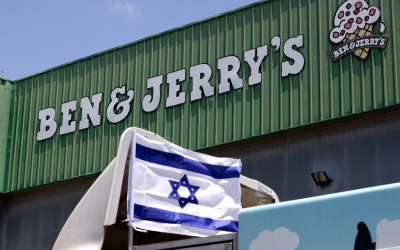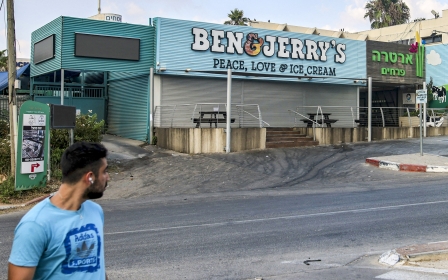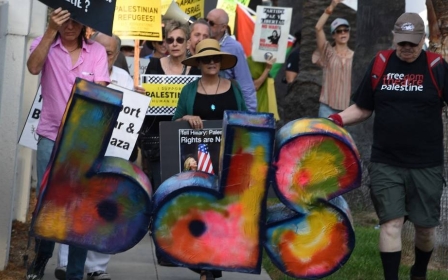US: New York state puts Ben & Jerry's 'on notice' over Israel settlement boycott

The US state of New York State has given a 90-day notice to Ben & Jerry's and its parent company Unilever that it will divest from the companies over the ice cream maker's decision to stop sales in Israeli settlements in the West Bank and East Jerusalem.
In a letter sent on Friday to Unilever's chief executive Alan Jope, the New York Office of General Services said the company "appears to have engaged in boycott, divestment or sanctions activity targeting Israel that may require Unilever PLC on the list of companies or institutions that affected State entities are required to divest from".
New MEE newsletter: Jerusalem Dispatch
Sign up to get the latest insights and analysis on Israel-Palestine, alongside Turkey Unpacked and other MEE newsletters
A similar letter was sent to the Vermont-based Ben & Jerry's company.
The Forward first reported on the letter.
The state gave Unilever 90 days to respond and communicate it is not engaging in a boycott of Israel, otherwise, it will be added to a list of 11 companies that New York has already divested from.
Last week, New York City Mayor Bill de Blasio said the parent company should be given one last chance to show it is not boycotting Israel by making new investments in the region.
"If they make that kind of commitment, I'd be very receptive," de Blasio said during a daily news briefing. "If they refuse, then divestment becomes a much more necessary option."
Sanctions and divestment
In July, the ice cream company announced plans to stop selling its products in Israeli settlements, which many global bodies consider to be illegal under international law. Since then, it has been threatened with punitive measures in the US, with critics accusing the company of acting out of anti-Jewish sentiments.
In its announcement, Ben & Jerry's explicitly said it was not boycotting Israel, but only ceasing sales in Palestinian territories occupied illegally under international law, stating "the sale of ice cream in Occupied Palestinian Territory is inconsistent with our values".
Despite this clarification, a number of US states have gone on to threaten the company with sanctions and divestment. At least eight states have taken steps to either pause or withdraw their investments in Unilever since the announcement.
In September, Arizona announced it would be reducing its $143m in investments in Unilever to zero.
The pension funds of Arizona, New Jersey, and New York - the third largest public pension plan in the US - also announced plans to sell their investments in Ben & Jerry's parent company.
Several other states, including Maryland, Illinois, and Indiana, are assessing whether state-level anti-BDS laws are applicable over the ice cream company's move. Nearly three dozen states currently have various forms of anti-boycott legislation.
The BDS campaign is a Palestinian-led, non-violent initiative that encourages individuals, nations and organisations to censure Israel's consistent violations of international law and human rights standards through various boycotts.
Supporters of Ben & Jerry's decision have voiced criticism about New York state's move to potentially blacklist the company.
Ahmed Mohamed, legal director at the New York chapter of the Council on American-Islamic Relations (CAIR), accused the state of "silencing Palestinian voices and actions that humanize Palestinians".
"New York and the governor should be siding with the constitution, not punishing individuals and companies speaking out about atrocities that occur overseas," he told The Gothamist.
Middle East Eye delivers independent and unrivalled coverage and analysis of the Middle East, North Africa and beyond. To learn more about republishing this content and the associated fees, please fill out this form. More about MEE can be found here.





